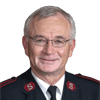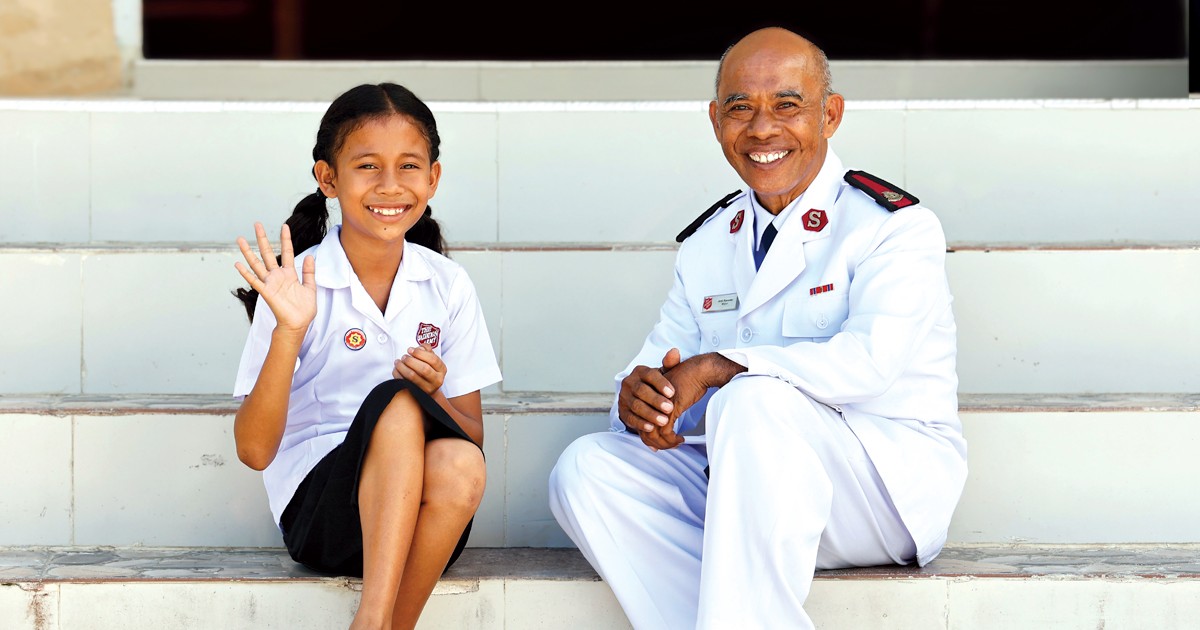 Legend is told of a king who held a great race involving all the young men of his kingdom. The course began and ended in the king's courtyard and the prize was a bag of gold. As they raced, the young runners were surprised to find a great pile of stones blocking their route, but they managed to climb over them and continue. When all the runners but one had crossed the finish line, the king waited before declaring a winner.
Legend is told of a king who held a great race involving all the young men of his kingdom. The course began and ended in the king's courtyard and the prize was a bag of gold. As they raced, the young runners were surprised to find a great pile of stones blocking their route, but they managed to climb over them and continue. When all the runners but one had crossed the finish line, the king waited before declaring a winner.
Finally, the lone runner stumbled through the gate. “My king, I'm sorry I'm late,” he said, holding up his bleeding hand. “I discovered a pile of rocks on the road and I injured myself moving them.” Then he raised up his other hand and said, “But my king, underneath the rocks I found this bag of gold.”
“You have won the race,” replied the king. “The one who runs best is the one who makes the path safe for others.”
How do we safeguard the way for others? In early March, Canadian faith leaders from the world's major religions—including Colonel Floyd Tidd, chief secretary—met in Ottawa with MPs from all of the political parties. Their message was clear and unequivocal: The level of poverty in Canada is unacceptable. More than three million Canadians—or one in 10—live in poverty, including 610,000 children. Last November, Food Banks Canada reported that 900,000 Canadians rely on food handouts, an increase of nine percent from 2009.
The Ottawa visit was not simply a rant against those in public office to provide a cure for our nation's most vulnerable citizens. The faith leaders' plea was for a comprehensive, co-ordinated and collaborative action involving all Canadians to make poverty reduction a priority. There was no passing the buck. The challenge put forward was to lay aside religious and political differences and commit together to make life better for the millions of poor people living in our communities. Hardly an easy task, but doable.
Consider this. The current affairs publisher Canada and the World reports that providing basic health care and nutrition for everyone on earth would cost about $13 billion, a little more than one percent of the global military budget. The sad truth is that with more than $1 trillion spent globally on armaments, the world is not a safer place. And the plight of the poor continues to worsen.
Making the way safe for others begins when we take seriously the needs of others and determine to do something about it. The research project conducted by Vision Critical in partnership with our territorial public relations and development department examines the attitudes of Canadians toward the poor. The study provides each of us with a litmus test as to our own beliefs about those trapped by poverty in Canada.
We're not likely to find a bag of gold at the end of our journey, but there is the promise by another King for a better world. “Whatever you did for one of the least of these brothers and sisters of mine, you did for me” (Matthew 25:40).
Read the Faith Leaders' Declaration that resulted from their Ottawa visit at www.salvationist.ca/faithdeclaration.
 Major Jim Champ is Editor-in-Chief and Literary Secretary for The Salvation Army. He is also a member of the Governing Board of the Canadian Council of Churches.
Major Jim Champ is Editor-in-Chief and Literary Secretary for The Salvation Army. He is also a member of the Governing Board of the Canadian Council of Churches.









Comment
On Friday, May 6, 2011, Randy Holden said:
Leave a Comment